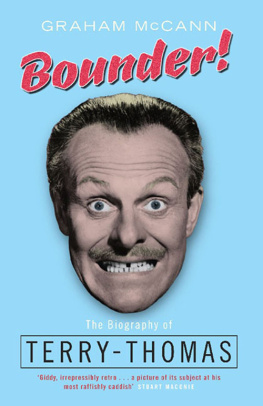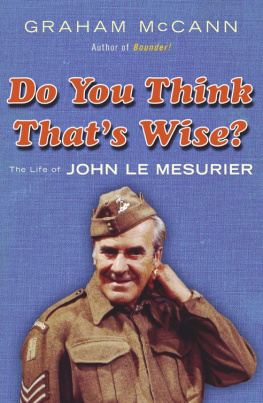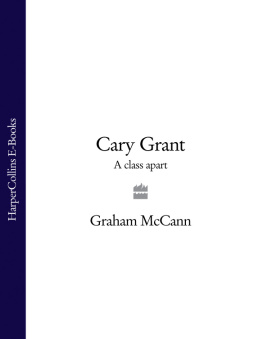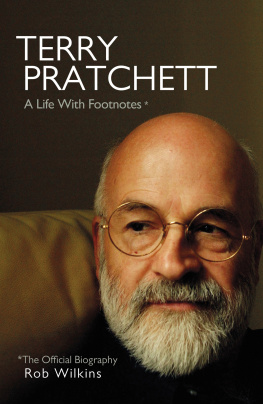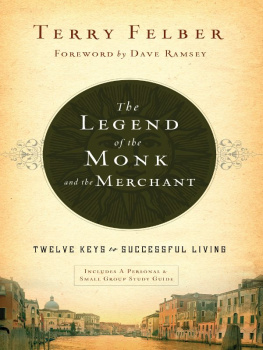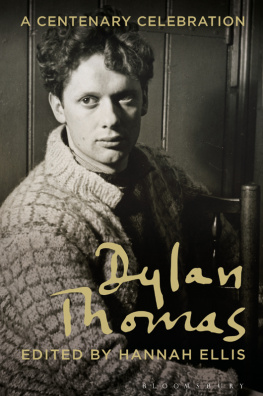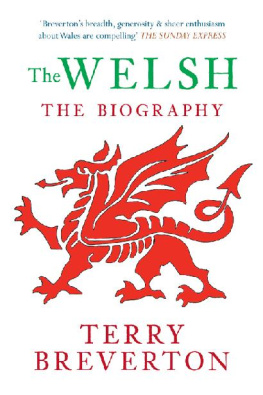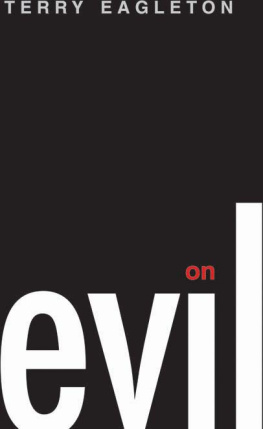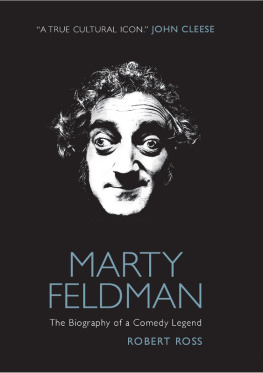For
Richard Briers,
Richard Hope-Hawkins
&
Glyn Roberts
In this age, the mere example of non-conformity, the mere refusal to bend the knee to custom, is itself a service. Precisely because the tyranny of opinion is such as to make eccentricity a reproach, it is desirable, in order to break through that tyranny, that people should be eccentric. Eccentricity has always abounded when and where strength of character has abounded; and the amount of eccentricity in a society has generally been proportional to the amount of genius, mental vigour, and moral courage which it contained. That so few now dare to be eccentric marks the chief danger of the time.
John Stuart Mill
They say that the only way to find truth is to deny oneself, but I would rather have a bash at finding it the luxury way. Wouldnt you? You see, ones hope of finding it is so small that it seems silly to go after it the hard way, doesnt it?
Terry-Thomas
I TAKE SPECIAL pleasure in expressing my gratitude to Richard Briers for his kindness and advice, as well as to two other great Terry-Thomas admirers and archivists, Richard Hope-Hawkins and Glyn Roberts; their help, and trust, improved this book immeasurably. Jonathan Cecil was another remarkably generous and insightful advisor, and, among other interviewees, I am particularly indebted to Barry Cryer, Sarah Miles and Eric Sykes.
I am also grateful to the staff of the following institutions: the BBC Written Archives Centre at Caversham; the National Archives at Kew; the London Metropolitan Archives; the British Library, Newspaper Library and Sound Archive; the Theatre Museum in London; the Margaret Herrick Library in California; the National Film and Sound Archive of Australia; the British Film Institute Library; and the University of Cambridge Library. I am pleased to acknowledge, in addition, the assistance and encouragement from everyone at Aurum especially my editor, Karen Ings, and Graham Coster and Dan Steward as well as my agent, Mic Cheetham, and Nigel Adams, Wendy Ashman, Peter Eaton, Steve Gove, David Jones, Richard McCann, Irene Melling, Tony Osborne, Christopher Potter and Richard Webber. Special thanks go, as always, to Silvana Dean, Dick Geary and my dear mother, Vera McCann, for their essential friendship and support.
Contents
The point I am trying to make is that you must give the ruddy thing a chance
THERE HE IS , out on the tennis court, ready to play the first game of his match against a frightfully nice, terribly well-brought-up, but rather gullible sort of young fellow. Thwack! The frightfully nice young fellow, blinded by the sunlight, hits his first serve straight into the net. He tries again: Thwack! Double fault: Love-fifteen (Hard cheese!). Thwack! Another limp serve droops straight down into the net (Hard cheese!), followed by a second that actually manages to make it over the net at last and deep into the other side of the court. Out! cries the young fellows crafty opponent but Ill take it! Thwack-whizz! Love-thirty (Hard cheese!). The next serve also ends up in the net (Hard cheese!). The next one fails to materialise at all (Oh! Hard cheese!). Love-forty. The frightfully nice young fellow takes a deep breath, tosses up the ball and tries his very best to save the game: Thwack! Out! Hard cheese! The second serve flies off sideways and ends up rattling into the wire fence. Thwack-ping! Oh, I say! crows his tormentor. Smashing cricket stroke! Well, thats, ah, one-love. Sure you wouldnt like that handicap?
This is School For Scoundrels Raymond Delauney, otherwise known, mutatis mutandis, as The Naked Truths Lord Mayley, otherwise known as Im All Right, Jacks Major Hitchcock, otherwise known as Those Magnificent Men in Their Flying Machines Sir Percy Ware-Armitage, Bart, otherwise known as Its a Mad, Mad, Mad, Mad Worlds Lt-Col. J. Algernon Hawthorne but always known, to his watching audience, as the one and only Terry-Thomas.
Terry-Thomas was and remains British cinemas favourite fake. With his sly little moustache, his broad gap-toothed grin, his garish waistcoats, his ostentatious cigarette holders and his bright-eyed, gleefully up-to-something way of saying Hell-o!, he was blatantly all form and no content, a comically inverted image of the conventional English gent. He was, in short, an absolute bounder.
What is a bounder? A bounder is not quite the same kind of character as a cad, a wastrel, an arriviste or a parvenu. Unlike his tougher cousin the cad, the bounder is not the type of person who is wilfully callous and cruel. Unlike the wastrel, the bounder is no hopeless slave to aimless profligacy. Unlike the arriviste who is desperate to get somewhere or the parvenu who is desperate to stay there the bounder is content just to nip in and out of there and elsewhere without ever being called on to pay the full price of admission.
A bounder is, in short, a crafty tall story a distinctively English kind of free rider. He is a man who is prepared, in order to ensure that he gets his own way, to bend the rules of whatever is considered to be the proper type of adult behaviour, and slip a shiny shoe or two beyond the bounds of gentlemanly good grace. He is neither good nor bad, but merely childishly self-obsessed: a chronically mischievous, uncomplicatedly flawed and unashamedly sybaritic old rascal.
There have been plenty of bounders half-baked and full-blown in real life. Take B.J.T. Bosie Bosanquet, for example: a very well-connected sporting Old Etonian and Oxford Blue, with a weakness for billiards, banking and long leisurely lunches, who popularised that most bounderish of cricketing actions, the notorious wrongun, or, as it also came to be known, the googly a ball delivered with an orthodox leg-break action which, with a deviously unorthodox twist of the wrist at the moment of release, bounces towards the batsman from an impertinently unexpected off-break angle. Bad form! gasped the watching gentlemen. Ding-dong! giggled the watching bounders.
Take, as another example, none other than Bosies very own son, Reginald Bosanquet, who read the news on British television for ITN during the 1970s. Dubbed Reggie Beaujolais by a grateful Private Eye, this thrice-married soft-cheeked sybarite with the lop-sided grin became notorious for the tipsiness of his delivery, the woozy look of his wig and the Unprofessional! snapped the gentlemen. Unmissable! sniggered the bounders.
Then there was the writer, musician, painter, raconteur and cofounder of the Bonzo Dog Doo-Dah Band, Vivian Stanshall a sly young wag from Oxfordshire who kept his wit uncorrupted by commerce, fled from every job that threatened to become even remotely proper, and dedicated himself unreservedly to a lush life of imaginative and elaborate larks. On one celebrated occasion (which was then reprised at irregular intervals), he wandered into an unsuspecting London tailors shop and started admiring a particular pair of sturdy-looking woollen trousers; his accomplice arrived, posing as another customer, and insisted that he wanted to purchase the very same item of clothing. The two men contested the issue fiercely by pulling at one leg each until, much to the watching tailors horror, the trousers tore in half at which point a one-legged actor (hired by Stanshall) hopped into the shop and exclaimed excitedly, Ah just what Ive been looking for! Juvenile! moaned the gentlemen. Delightful! cheered the bounders.
It was the same sort of thing, on the screen, with Terry-Thomas only more so. He was never, in truth, a particularly good on-screen bounder, in the sense that his bounding was so easily bated, but his obvious incompetence in addition to his unashamed incorrigibility only served to make him all the more endearing.
Next page
